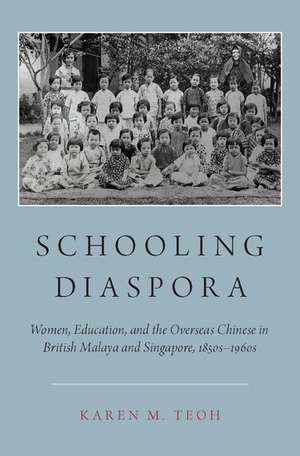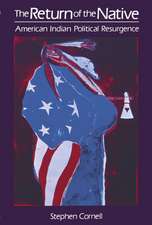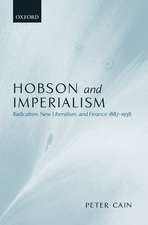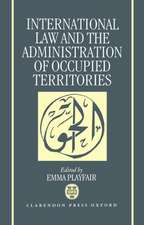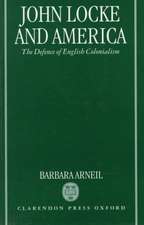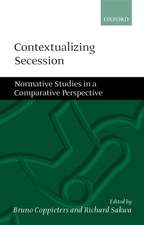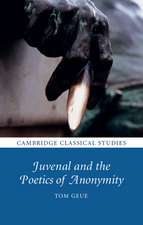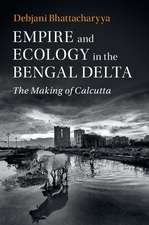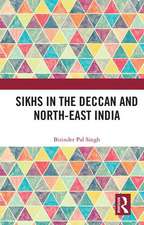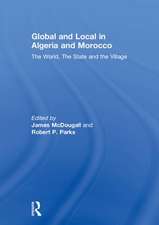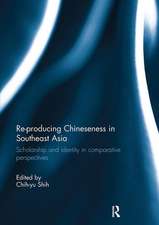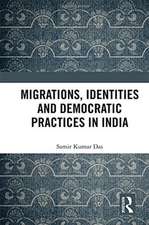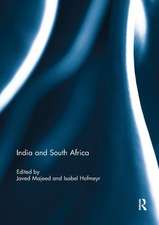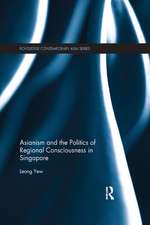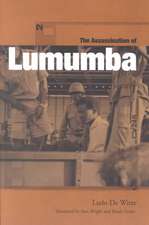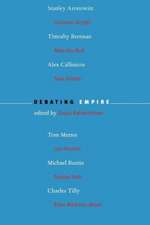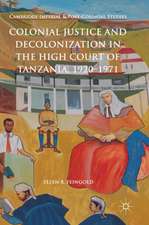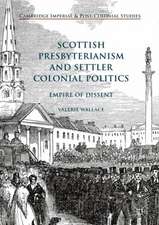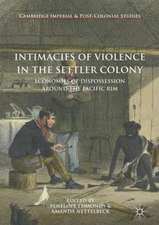Schooling Diaspora: Women, Education, and the Overseas Chinese in British Malaya and Singapore, 1850s-1960s
Autor Karen M. Teohen Limba Engleză Hardback – feb 2018
| Toate formatele și edițiile | Preț | Express |
|---|---|---|
| Paperback (1) | 182.75 lei 10-16 zile | |
| Oxford University Press – 17 iul 2020 | 182.75 lei 10-16 zile | |
| Hardback (1) | 535.35 lei 31-37 zile | |
| Oxford University Press – feb 2018 | 535.35 lei 31-37 zile |
Preț: 535.35 lei
Preț vechi: 715.16 lei
-25% Nou
Puncte Express: 803
Preț estimativ în valută:
102.45€ • 105.84$ • 85.27£
102.45€ • 105.84$ • 85.27£
Carte tipărită la comandă
Livrare economică 15-21 martie
Preluare comenzi: 021 569.72.76
Specificații
ISBN-13: 9780190495619
ISBN-10: 0190495618
Pagini: 248
Ilustrații: 23 hts
Dimensiuni: 239 x 155 x 23 mm
Greutate: 0.59 kg
Editura: Oxford University Press
Colecția OUP USA
Locul publicării:New York, United States
ISBN-10: 0190495618
Pagini: 248
Ilustrații: 23 hts
Dimensiuni: 239 x 155 x 23 mm
Greutate: 0.59 kg
Editura: Oxford University Press
Colecția OUP USA
Locul publicării:New York, United States
Recenzii
Karen M. Teoh helps readers both visualise and envision, through descriptive and detailed research, the lives, culture, and lived experiences of overseas Chinese women in female schools in British Malaya and Singapore from 1850s to 1960s. The work is a collection of oral histories, shared experiences, and research that presents a remarkable tribute to the collective body of overseas Chinese females whose experiences are represented therein ... [it] ensures that the complicated and winding history of overseas educated Chinese in British Malaya and Singapore is neither overlooked nor forgotten. The work also ensures imagined notions of overseas Chinese and female education in historical British Malaya and Singapore are viewed through their authentic, deeply dynamic realities.
Schooling Diaspora is a valuable contribution to our understanding of education as part of the colonial project and competing notions of gender in the Chinese community in Southeast Asia.
This book is an important contribution not only to the history of female education in Malaya, it also contributes significantly to our understanding of the experiences of Chinese migrants and the political participation of overseas-Chinese women in Malaya. It demonstrates how the intersections of national, ethnic and gender identities were played out for overseas-Chinese women as well as the convergences and divergences in the educational experiences of Chinese women across English-medium and Chinese-medium schools.
Schooling Diaspora...breaks new important ground in the historical study of the overseas Chinese. Not only does this book depart from the conventional focus on male mobility, but it also rejects tired assumptions of in-betweenness or a divided sense of belonging about a diasporic group. Rather, Teoh carefully delineates how different ideologies of colonialism, ethnonationalism, and patriarchy simultaneously lay claim to her subjects' commitments, complicating their identities... By moving beyond the national framework in considering questions of ethnicity and power, Teoh successfully recasts these familiar questions in a wider terrain where identity options were multiple and constantly shifting... The result of Teoh's efforts is a groundbreaking work that deftly brings together a variety of sources and interpretations about the transnational lives of educated Chinese women.
Schooling Diaspora successfully depicts how diasporic women's education has been woven into the transnational narratives of modernity and nationalism, and how education and women's self-identity mutually shaped each other. Bridging the gap between Chinese and Southeast Asian history, it provides an important transnational case study of diasporic Chinese women and their educational experience for the global discussion of education, gender and nationalism, and identity.
Schooling Diaspora is a valuable contribution to our understanding of education as part of the colonial project and competing notions of gender in the Chinese community in Southeast Asia.
This book is an important contribution not only to the history of female education in Malaya, it also contributes significantly to our understanding of the experiences of Chinese migrants and the political participation of overseas-Chinese women in Malaya. It demonstrates how the intersections of national, ethnic and gender identities were played out for overseas-Chinese women as well as the convergences and divergences in the educational experiences of Chinese women across English-medium and Chinese-medium schools.
Schooling Diaspora...breaks new important ground in the historical study of the overseas Chinese. Not only does this book depart from the conventional focus on male mobility, but it also rejects tired assumptions of in-betweenness or a divided sense of belonging about a diasporic group. Rather, Teoh carefully delineates how different ideologies of colonialism, ethnonationalism, and patriarchy simultaneously lay claim to her subjects' commitments, complicating their identities... By moving beyond the national framework in considering questions of ethnicity and power, Teoh successfully recasts these familiar questions in a wider terrain where identity options were multiple and constantly shifting... The result of Teoh's efforts is a groundbreaking work that deftly brings together a variety of sources and interpretations about the transnational lives of educated Chinese women.
Schooling Diaspora successfully depicts how diasporic women's education has been woven into the transnational narratives of modernity and nationalism, and how education and women's self-identity mutually shaped each other. Bridging the gap between Chinese and Southeast Asian history, it provides an important transnational case study of diasporic Chinese women and their educational experience for the global discussion of education, gender and nationalism, and identity.
Notă biografică
Karen M. Teoh is Associate Professor of History and Director of Asian Studies at Stonehill College.
